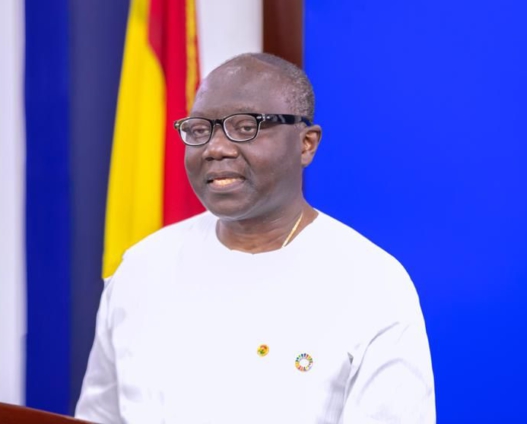Ghana plans to convert an estimated ¢40 billion ($3.3 billion) of loans owed to its central bank into bonds, making it the single biggest holder of domestic government securities and exposing it to an ongoing debt restructuring, according to people familiar with the matter.
The bonds, due to be issued by the finance ministry, will also cover interest owed to the Bank of Ghana, said the people, who asked not to be named because they’re not authorized to speak publicly on the matter. The people didn’t provide details on a timeline for the securitisation, but Ghana is seeking to conclude restructuring of public debt this quarter with a view of securing IMF board approval by the end of March 2023.
The securitised central bank loan would be added to list of domestic debt under restructuring, the people added.
A central bank spokesperson declined to comment when reached by phone. A spokesperson for the finance ministry didn’t immediately respond to a call and text message seeking comment.
The new bonds would bring the central bank into Ghana’s ongoing debt restructuring process, under which it is asking investors to swap out ¢137.3 billion ($11.2 billion) worth of local government securities into new notes with less attractive terms. The voluntary exchange has a February 7, 2023 deadline.
The restructuring is a key condition to qualify for a desperately needed $3 billion bailout from the International Monetary Fund. But the IMF has also urged Ghana to stop borrowing from the central bank in order to secure the bailout, Bloomberg reported earlier this week.
The government’s debt to the central bank has ballooned in the past year, as investors’ appetite for local bonds dimmed.
The country has also been shut out of international markets after suspending interest payments on $13 billion of eurobonds.
The people noted that under Ghanaian regulations, Section 30 of the Bank of Ghana Act permits the central bank to lend to the government. But if repayment is “unduly delayed, the Bank may transfer the debt to the public through the sale of treasury bills,” the Act says.
Securitising the loans would head off the central bank issuing treasury bills to recoup its money.
Ghana’s government debt reached ¢575.7 billion($47 billion) at the end of November 2022, while public debt stood at an estimated 105% of Gross Domestic Product, a figure the country hopes to reduce to 55% by 2028.
Besides restructuring local bonds, it is also in talks to restructure bilateral and external debt.
Latest Stories
-
Salaga South MP advocates reparations to Africa
15 minutes -
Don’t celebrate yet, declined T-bill yields artificial – IPPA to Finance Minister
7 hours -
Hidden epidemics in Africa and power of serosurveillance
7 hours -
Policy rate hike came at a wrong time; government must be financially disciplined – IPPA
8 hours -
Telecel CEO calls for collaboration between academia and industry for nation-building
8 hours -
Telecel Enterprise Business Director advocates strengthened support for women entrepreneurs
8 hours -
Chamber of Licensed Gold Buyers hails enactment of GoldBod Act
9 hours -
Securing Rugby’s Future: Morocco welcomes 2025 international seminar on African Rugby Development
9 hours -
UHAS commits to advancing role of sports in public health and national dev’t
10 hours -
FixTheCountry to stage May 1 protest over gov’t inaction on illegal mining
10 hours -
Some film producers wanted to end my dreams – Yvonne Nelson
10 hours -
Daily Insight for CEOs: The CEO’s guide to financial leadership
10 hours -
China-Ghana Mining Association inaugurated to deepen bilateral collaboration
10 hours -
Gov’t to equip pre-tertiary schools with tech tools to boost STEM and AI education
11 hours -
Delta Air Lines champions women’s leadership in global trade
11 hours

